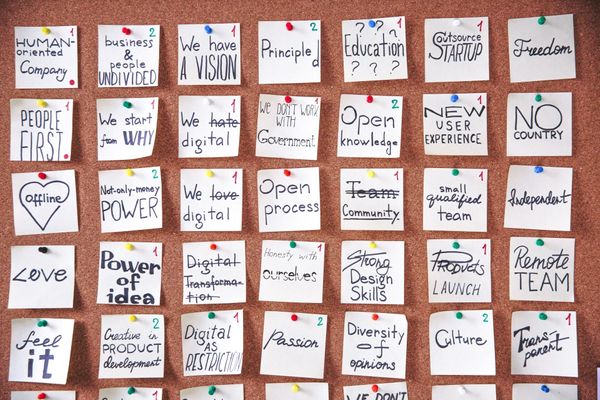Forget of those hackers in movies who are trying to break encryption on someone's computer to get their top-secret files. Hackers responsible for data breaches typically begin by attacking organizations rather than particular people. They try to get the data from as many users as possible so that they can use, resell, or exploit it to make money. It's all beginning to have your password.
All sorts of data can be valuable.
Any data — such as account records, bank card numbers, government-issued ID numbers, and PIN numbers — are useful because they can be used to hack the victim's identification or to withdraw money. Email addresses and passwords are also useful since hackers will use them on other websites as well. All types of data can be useful in any way, so they can be traded on the dark web for sale or saved for a potential use.
Common passwords used make it easy.
In reality, hackers don't guess people's passwords. To break accounts, they use automatic programs that insert hundreds of common passwords in just a few seconds. That's why it's crucial to stop using the same passwords as everyone else does.
- 123456 and the password are the two frequently known passwords.
- Switching a letter to a sign (p@ssw0rd) is an obvious technique that hackers are aware about.
- Avoid using password from favorite sports teams or singer and so on.
- Do not use common number patterns such as 111111, abc123, or 654321.
- Adding a number or a bit of punctuation at the end would not make the password better.
Don't use same password to all accounts.
Hackers know people use the same passwords repeatedly. If your banking password is the same as your Facebook password, a single flaw on one site could put others at risk. That's why you should use separate passwords for every single account.
The average user has 90 accounts, which is a lot of passwords to recall. Security specialists advocate using a password manager to easily save unique passwords for each site.
Its not about money you have.
Think you don't need to care about it because you don't have a lot of money to steal? Hackers couldn't care less about it. There are endless opportunities to exploit all sorts of personal data for benefit.
Via identity theft, cyber criminals may obtain new credit cards or apply for loans on your behalf. They will make deposits or deposits through receiving your financial details. These attackers can also find ways to threaten your friends and family when they have access to your inbox.
It's not personal. Until it is.
Hackers don't even care whose personal data and credential they can access, as long as they can get a lot of it. That's why cyber criminals frequently attack big corporations with millions of consumers. These hackers are searching for a security weakness — a modern version to leaving a door opened or a window open. They just need to find a door or a window to get inside. They then steal or duplicate as much personal information as possible.
When the data has been processed, cyber criminals will start their real work. We don't really know what they're going to do with the info, but they're generally going to try to find a way to make a profit from it. This will not effect you immediately but it can be really dangerous as they find the way to exploit your data.
Notes:
The term HACKER doesn't means bad people this is just news been published by media in past. The term computer hacker first showed up in the mid-1960s. There are many hackers in present days helping company to solve venerability in there system.
Hackers were visionaries who could see new ways to utilize technology, producing applications that no one else could think of. They were the leaders of the computing field, creating everything from small applications to operating systems. In this context , people like Bill Gates , Steve Jobs, and Steve Wozniak were both hackers — they saw the potential of what machines could do, and they developed ways to reach that potential.







